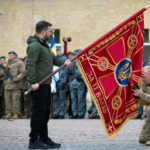While the insurance sector is presently engaged in a comprehensive recapitalisation process targeting insurance and reinsurance companies, emerging reports suggest that Takaful and micro-insurance providers will soon face similar capital enhancement requirements.
LEADERSHIP has gathered that the National Insurance Commission (NAICOM) is conducting a detailed evaluation of the various subsectors within the insurance industry to determine the optimal capital thresholds necessary to adequately cover the risks assumed by Takaful and micro-insurance operators nationwide.
The regulator appears to be adopting a measured approach, avoiding simultaneous recapitalisation demands across all players. Sources indicate that the subsequent phase following the current recapitalisation will focus on entities operating within the informal economy.
At a recent NAICOM seminar held in Abeokuta, Ogun State, specifically organized for insurance journalists, the Commissioner for Insurance and CEO of NAICOM, Olusegun Omosehin, confirmed that recapitalisation plans for Takaful and micro-insurance firms are under active consideration. He highlighted that shifts in the business landscape and rising asset replacement costs necessitate that these operators maintain sufficient liquidity to effectively underwrite grassroots insurance activities.
Omosehin reassured stakeholders that although this recapitalisation is essential, the regulator intends to complete the current phase before initiating capital upgrades for micro and Takaful insurers.
Detailing the regulatory reforms implemented in these sectors, Omosehin stated, “We have championed the expansion of microinsurance, Takaful, InsurTech, and web aggregators, thereby fostering the creation of straightforward, accessible, and affordable insurance products. By leveraging alternative distribution channels, we are broadening insurance accessibility to underserved populations.”
He emphasized that to boost insurance penetration, products must be integrated into critical sectors such as Transportation, Agriculture, Micro, Small, and Medium Enterprises (MSMEs), and Digital marketplaces. This strategy is pivotal for enhancing financial inclusion and providing protection to a wider audience.
Highlighting the broader significance of insurance, Omosehin remarked, “Insurance transcends mere documentation; it embodies a commitment to protection, a tool for resilience, and a foundation for social stability. Whether it’s a claim payout that aids a business in recovering from a setback, a microinsurance policy that safeguards a family’s financial wellbeing, or a Takaful product that fosters inclusive participation, the true value of insurance lies in its impact on people’s lives.”
Regarding the provision of accessible, affordable, and pertinent coverage, he noted that the regulator facilitates tailored insurance solutions for farmers, delivery riders, traders, and gig economy workers, ensuring they receive protection precisely when needed, coupled with prompt and equitable claims processing.
“The National Insurance Industry Roadmap for Accelerated Growth (NIIRA) supports inclusive insurance expansion, driving higher market penetration while preserving stability. This balanced methodology allows the industry to grow sustainably and protects policyholders effectively,” he explained.
Omosehin concluded by underscoring the guiding principles at NAICOM: “Our mission is to foster innovation, protect policyholders, and nurture a trustworthy insurance market for Nigerians. Trust is not built in isolation; it is cultivated through transparency, accountability, and open communication.”
He called on media professionals to play a pivotal role in this endeavor, stating, “We urge our media partners to lead this journey. Through accurate journalism, insightful analysis, and constructive dialogue, you can influence public perception and bolster confidence in the insurance sector.”

















